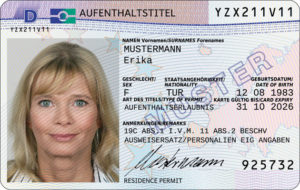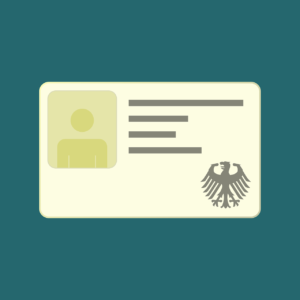A visa allows you to enter Germany. If you want to stay longer than 3 months you will need to apply for a residence permit (Aufenthaltserlaubnis) at the local immigration authority (Ausländerbehorde )
You can only apply for a residence permit after you registered at the local Town office (Bürgerampt). See more about registering here.
Where must you apply
You apply at the immigration office (Ausländerbehorde)
Depending on where you live, this can be in your city (Stadkreis) or at the district office (Landratsamt).
You can use the Ortdienste website to find your local office. Click on the Bundesländer and zoom in from there.
Another website to use is Melderegister
You can also search online for Ausländerbehörde and your town e.g. Ausländerbehörde Leinfelden.
In smaller towns, the Bürgeramp and the Ausländerbehorde are in the same building but this may not be the case in bigger cities.
Documents needed
- Valid passport
- Proof of income, e.g. employee contract
- Proof of medical insurance
- Registration certificate (Anmeldebescheinigung) that you get from the Bürgeramt after registering with them. This will be your new proof of residence, but take your rental agreement with you just in case.
- Completed application form
- Biometric photos
- the rest will depend on the purpose of stay e.g for work, study etc.
Vocabulary
| Proof of residence | die Wohnungsgeberbestätigung |
| Obligation to register | die Meldepflicht |
| Residence permit | die Aufenthaltserlaubnis |
| Registration certificate | die Anmeldebescheinigung |
What do you get
Your first Residence card will be temporary, valid depending on your situation and conditions for example the period of your studies, Family reunification or work situation. Again depending on your situation you can apply for permanent residence after a certain amount of time.
Proof of residence is in the form of a physical electronic card. Read more about what it offers and how to use it here.

Residence in Germany
A Visa allows you to enter Germany, and stay for no more than 90 days in a 180-day cycle.When you want to stay in Germany for longer than 90 days, you will need to apply for the correct visa in your home country and once you are in Germany, apply
Related cotent

Checklist after arriving in Germany
Your first days in Germany can be very overwhelming and confusing. The forms you must fill in and the administrative tasks you must do will

Temporary proof of German Residence
To stay in Germany longer than 90 days in a 180 period, you will need a residence permit. Qualifying for a residence permit will depend,

German laws and regulations
Disclaimer The information provided on this website is for general informational purposes only and is not intended to constitute legal advice. You should consult a



You must be logged in to post a comment.